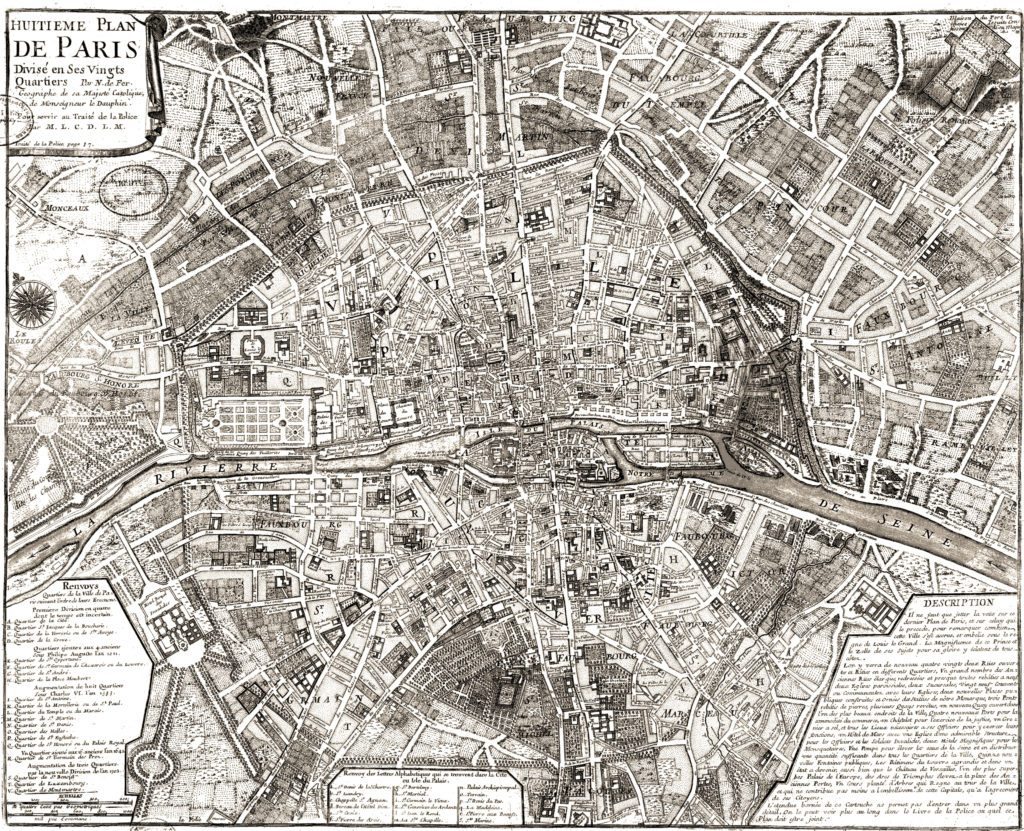Paris 1705
Paris in the early 18th century was a major hub for culture, commerce, and intellectual life in Europe. While records from this period are not as detailed as those from more recent history, some significant events and developments occurred in or around 1705 that would have had implications for the city:
War of the Spanish Succession (1701-1714): This major conflict involved most of Europe, including France. While it was not fought on French soil, the war would have had economic and political implications for Paris. Many Parisians would have been enlisted to fight, and the war could have led to price inflation and a strain on public finances.
Expansion of the city: During the reign of Louis XIV, Paris saw significant urban development. The king ordered the construction of several new squares and public buildings, which would have continued into the mid-1700s. This was a period of physical growth and transformation for Paris.
Economic Developments: Paris was a leading economic center in Europe, with a range of industries including textiles, printing, and luxury goods. International trade would have continued to grow during this period, despite the disruptions of war.
Intellectual Life: The early 18th century was a time of scientific and intellectual advancement in Paris. The French Academy of Sciences, for instance, was actively promoting scientific research. The city’s coffee houses and salons were important venues for intellectual discussion and debate.
Plague of 1705: A contagious disease, referred to as plague, did break out in France in 1705, although it seems to have been largely confined to the Provence region in the southeast. The threat of the plague would have had an impact on Paris, leading to measures to prevent its spread, such as quarantine orders for travelers from affected regions.
While these are broader trends rather than specific events, they help to give a sense of the overall context in Paris in 1705.

